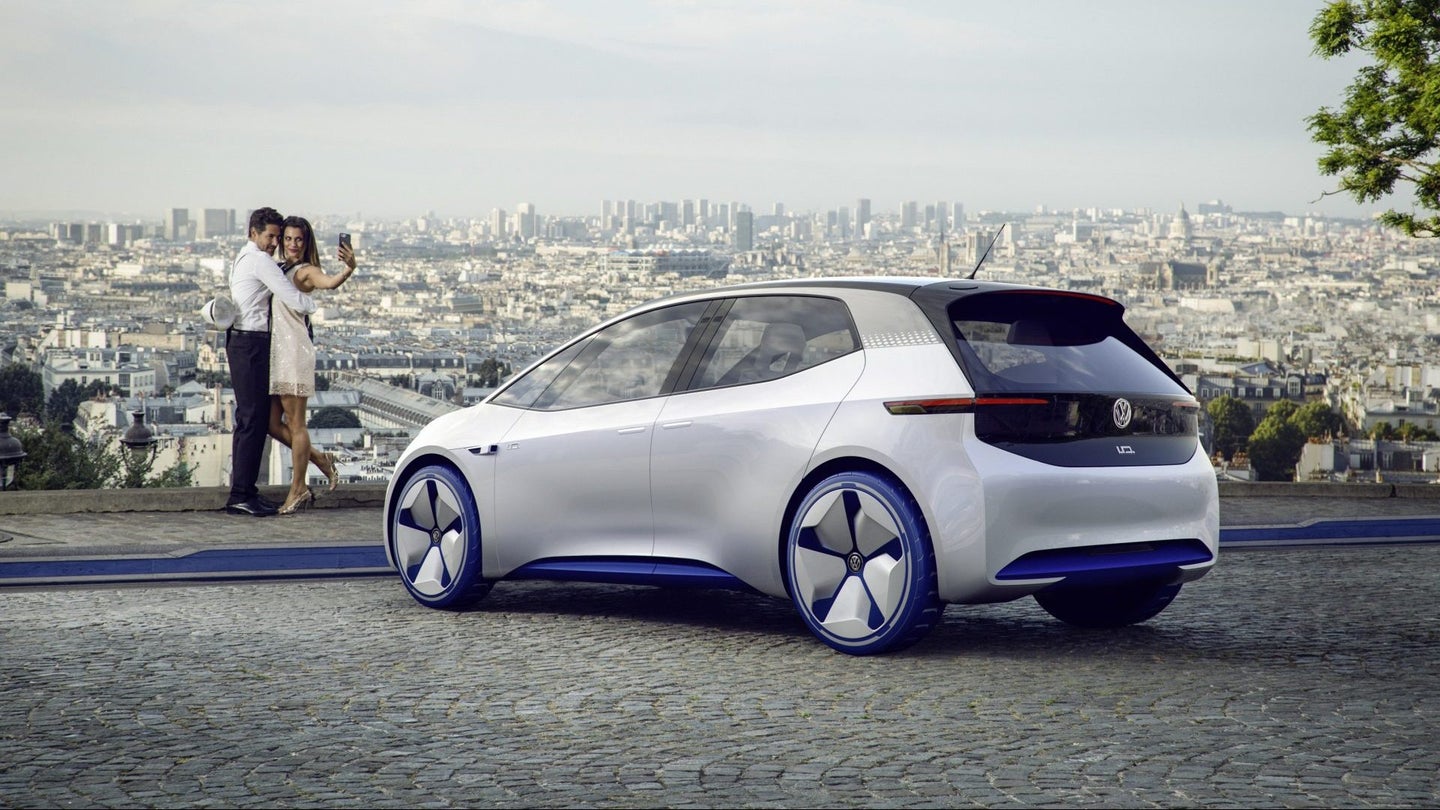VW I.D. Electric Hatchback Will be More Expensive Than Anticipated, Sell at a Loss: Report
Volkswagen reportedly plans to attain profitability on its electric models partway through the 2020s.

Volkswagen's first electric vehicle will reportedly cost more to produce than the automaker anticipated, and will initially be sold at a loss.
The company's inaugural production EV will be a small hatchback named the I.D., whose preorders are scheduled to open on May 8. Expanding on previous rumors that the model is to cost less than a Golf TDI, Auto Motor und Sport reports that Volkswagen intended for the I.D. to have a lower price than and build quality comparable to a maximum-spec Golf TDI, and that early production difficulties have made this an impossibility.
The German publication reports that the cheapest I.D. models are still expected to cost less than €30,000 (about $33,500), but only just, and will likely start at €29,990. At that price, it alleges that Volkswagen will lose €3,000 ($3,350) on every car sold, but that the automaker expects its MEB family of models to eclipse the profitability of combustion vehicles by 2025.
Comparable to trendsetter Tesla, which prioritizes the sale and delivery of high-trim, high-profit cars, Volkswagen will not make base I.D. models available at launch, instead planning to sell special launch-editions cars first. Contents of this launch package and pricing remain unknown, though AMuS claims to have powertrain and warranty details.
Launch cars are said to all be rear-wheel-drive models (all-wheel-drive will eventually be available), with 170- or 204-horsepower electric motors powered by 62 kilowatt-hour batteries. Range from this battery is predicted to come in at around 400 kilometers (249 miles), putting the I.D. in approximate contention with the Nissan Leaf Plus and Chevrolet Bolt. With RWD as standard or AWD as an option, we speculate that the I.D. may beat these competitors on the front of driving dynamics, and neither the Bolt nor Leaf are poor performers in these respects. Another possible competitor could be the lower-end Tesla Model 3, provided such cars are ever delivered in markets where the I.D. will be sold.
Maximum charge rate for the I.D. is reported to be 125 kilowatts, offering a near-full fast charge time of around a half hour. Charge times for the reportedly upcoming 48- and 82-kWh batteries are undisclosed, and there is as of yet no word on whether the I.D. will be available with the largest battery compatible with its platform, a 111-kwh unit.
When contacted for comment on these claims, Volkswagen declined to issue a statement.
Volkswagen is believed not to be planning to sell the I.D. in the United States, but its capabilities are still of great relevance to American consumers, as the I.D. will be the first among a family of EVs based on its new electric "MEB" architecture. This scaleable chassis system will underpin a range of electric models, at least two of which will be sold in the U.S., including the I.D. Buzz microbus, and I.D. Crozz crossover, which will launch here in 2020. Both these models will reportedly be built in the U.S., and likely at its Chattanooga, Tennessee plant, which will soon be the subject of an immense, $800 million upgrade.
